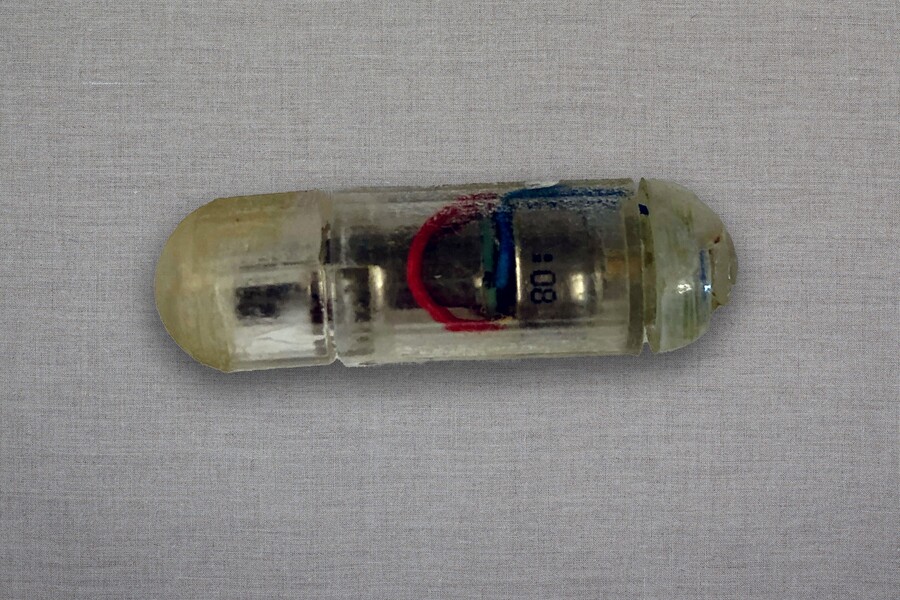
For the new study, scientists at MIT set out to see if they could take advantage of this system to artificially induce the urge to stop eating earlier, to help patients with eating disorders and related health concerns. Previous studies have found that applying vibrations to muscles can tell the body that muscle has stretched farther than it really has, which got the team thinking.
“I wondered if we could activate stretch receptors in the stomach by vibrating them and having them perceive that the entire stomach has been expanded, to create an illusory sense of distension that could modulate hormones and eating patterns,” said Shriya Srinivasan, lead author of the study.
To achieve this, the researchers developed what they call the Vibrating Ingestible BioElectronic Stimulator (VIBES) pill – a capsule that contains a vibrating motor powered by a small silver oxide battery. It only begins vibrating once it enters the stomach, where the acid dissolves a membrane and completes a circuit. Once activated, the pill vibrates for about 30 minutes.

The team tested the VIBES pill in pigs, tracking their hormones while it was active. Sure enough, their hormone release patterns followed those that usually occur after a meal, even if the treated pigs had been fasting. They also found that pigs that were given the pill 20 minutes before being given food ate around 40% less than they did without the pill, and gained weight more slowly.
“The behavioral change is profound, and that’s using the endogenous system rather than any exogenous therapeutic,” said Giovanni Traverso, senior author of the study. “We have the potential to overcome some of the challenges and costs associated with delivery of biologic drugs by modulating the enteric nervous system.”
Importantly, the pill was found to pass through the digestive tract after four or five days, and didn’t seem to cause any obstruction, perforation or other issues on its journey. The researchers suggest that a tweaked version could be made to stay in the stomach for longer, where it could be switched on and off wirelessly before meals.
The team says the VIBES pill could be an appealing alternative to appetite-suppressing drugs, which can have unwanted side effects, or more invasive surgeries like a gastric bypass.
The research was published in the journal Science Advances.
Source: MIT
–
–













